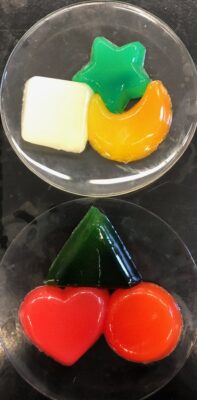Many a home cook has struggled with the question of what to do with used cooking oil—to say nothing of the dilemma of what to do with bacon fat (don’t pour it down the drain!).
Julian Silverman, assistant professor, Science and Math, takes on this question in a recently published scientific article exploring the use of waste cooking grease to make cleaners.

In the research, Silverman and his co-authors use different waste cooking oils to create bio-based soft materials, such as soap and gels for consumer products. This approach has potential environmental benefits, including reusing waste oils—rather than discarding them in landfills or drains—while minimizing the use of petroleum-derived raw materials, which currently form the base of many consumer gels. Gel formulations have the added benefit of making it easy to store and portion certain products. The research includes a detailed analysis of the material properties of the soap solutions, whose thickness, transparency and color vary based on which oil they’re made from.
The open-access article, “Formulation of Biobased Soaps Gels from Waste-Derived Feedstocks,” was published in March in RSC Sustainability, the sustainability journal of the Royal Society of Chemistry. The full article is available online.


